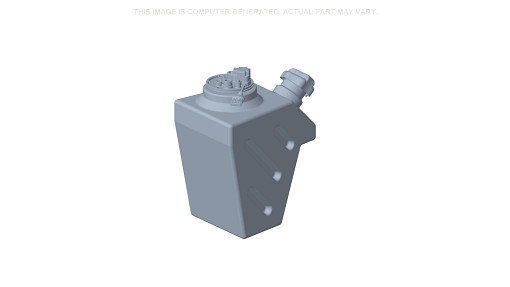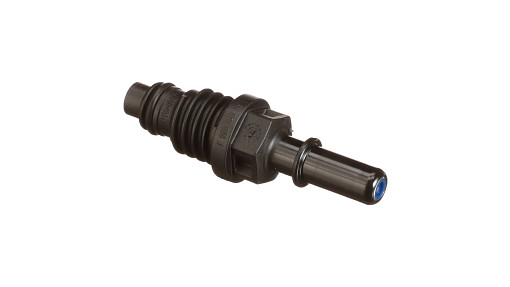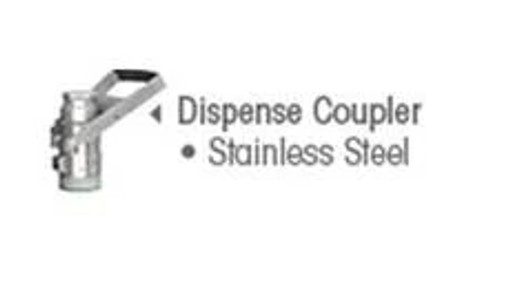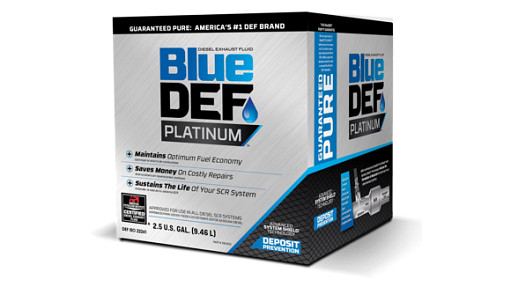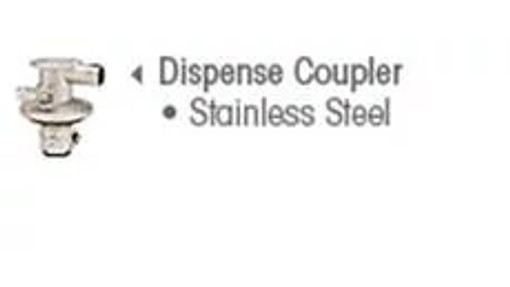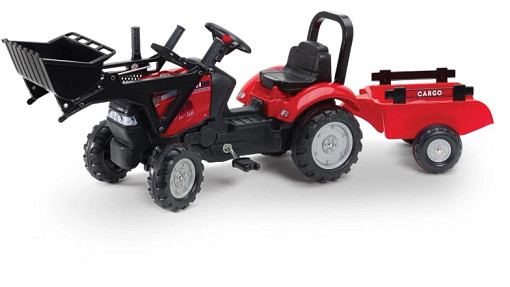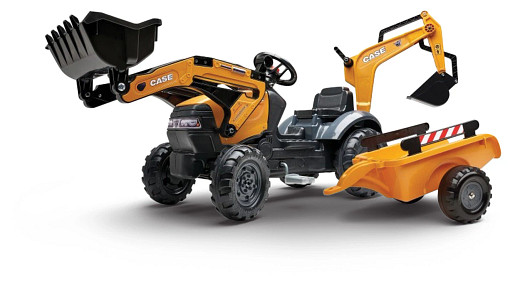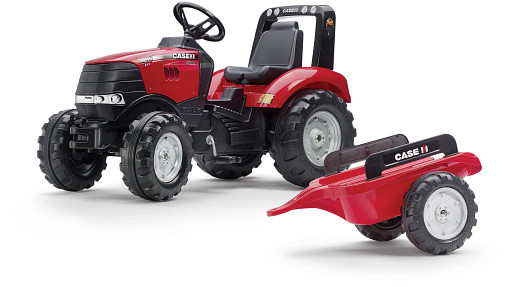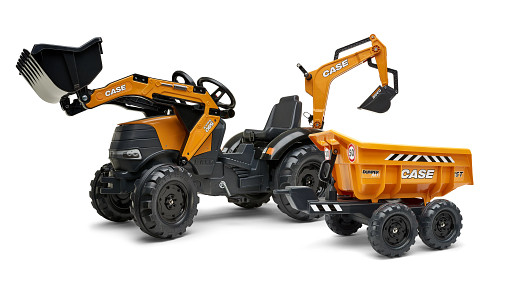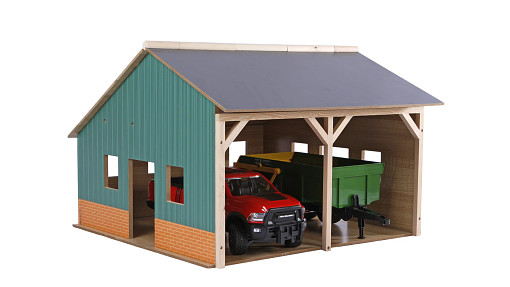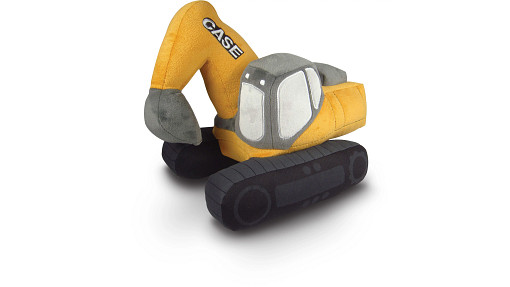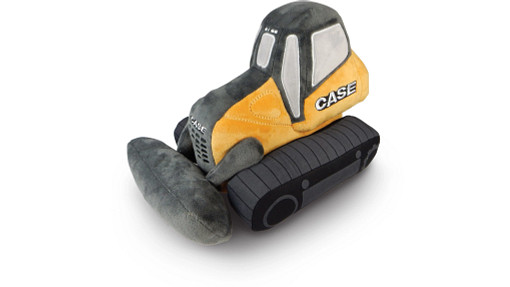SELECT MODEL
1021G - WHEEL LOADER - TIER 4B (NA) (10/16 - 07/21)
1021G WHEEL LOADER - EXTENDED REACH LINKAGE TIER 4B (FINAL) (NA) - MY23
1021G WHEEL LOADER - Z-BAR LINKAGE TIER 4B (FINAL) (NA) - MY23
1021G2 - WHEEL LOADER - STAGE V - TS - ZBAR
1021G2 - WHEEL LOADER - T4B - STD LINKAGE
1021G2 - WHEEL LOADER - T4B - XR LINKAGE (10/20 - 06/21)
1021G2 WHEEL LOADER - EXTENDED REACH LINKAGE TIER 4B (FINAL) (NA) - MY23
1021G2 WHEEL LOADER - Z-BAR LINKAGE TIER 4B (FINAL) (NA) - MY23
1110FX - T4 ROPS (HH)
1121G - WHEEL LOADER - TIER 4B (NA) (10/16 - 05/21)
1121G WHEEL LOADER - EXTENDED REACH LINKAGE TIER 4B (FINAL) (NA) - MY23
1121G WHEEL LOADER - Z-BAR LINKAGE TIER 4B (FINAL) (NA) - MY23
1121G2 - WHEEL LOADER - STAGE V - TS - ZBAR
1121G2 - WHEEL LOADER - T4B - STD LINKAGE
1121G2 - WHEEL LOADER - T4B - XR LINKAGE (10/20 - 12/22)
1121G2 WHEEL LOADER - EXTENDED REACH LINKAGE TIER 4B (FINAL) (NA) - MY23
1121G2 WHEEL LOADER - Z-BAR LINKAGE TIER 4B (FINAL) (NA) - MY23
1150M LT - CRAWLER DOZER - TIER 4A (10/12 - 09/16)
1150M LT - CRAWLER DOZER - TIER 4B
1150M LT - Long Track (LT), Tier 4, Made in Brazil
1150M WT - CRAWLER DOZER - TIER 4B
1150M WT - Wide Track (WT), Tier 4, Made in Brazil
1150M WT/LGP - CRAWLER DOZER - TIER 4A (09/12 - 11/16)
1650M LGP - Low Ground Pressure (LGP), Power Angle Tilt (PAT) Blade, Tier 4, Made in Brazil
1650M LGP PAT - CRAWLER DOZER - TIER 4B
1650M WT/LGP - CRAWLER DOZER - TIER 4A (10/13 - 10/15)
1650M XLT - CRAWLER DOZER - TIER 4A (10/13 - 07/15)
1650M XLT - Extra Long Track (XLT), Power Angle Tilt (PAT) Blade, Tier 4, Made in Brazil
1650M XLT BD - CRAWLER DOZER - TIER 4B (11/16 - 05/19)
1650M XLT PAT - CRAWLER DOZER - TIER 4B
2050M LGP BD - CRAWLER DOZER - TIER 4B (11/16 - 11/21)
2050M LGP BD - Low Ground Pressure (LGP), Bulldozer (BD) Blade, Tier 4, Made in Brazil
2050M LGP PAT - CRAWLER DOZER - TIER 4B
2050M LGP PAT - Low Ground Pressure (LGP), Power Angle Tilt (PAT) Blade, Tier 4, Made in Brazil
2050M LT BD - CRAWLER DOZER - TIER 4B (11/16 - 12/16)
2050M LT PAT - CRAWLER DOZER - TIER 4B (11/16 - 11/17)
2050M XLT - Extra Long Track (XLT), Power Angle Tilt (PAT) Blade, Tier 4, Made in Brazil
2050M XLT BD - CRAWLER DOZER - TIER 4B (11/16 - 01/22)
2050M XLT BD - Extra Long Track (XLT), Bulldozer (BD) Blade, Tier 4, Made in Brazil
2050M XLT PAT - CRAWLER DOZER - TIER 4B
221F - COMPACT WHEEL LOADER HS, ZB - TIER 4
421G - COMPACT WHEEL LOADER HS, ZB - STAGE V
521F - WHEEL LOADER - TIER 4B (NA) (02/16 - 10/16)
521G - WHEEL LOADER - TIER 4B (NA) (11/16 - 05/21)
521G WHEEL LOADER - EXTENDED REACH LINKAGE TIER 4B (FINAL) (NA) - MY23
521G WHEEL LOADER - PARALLEL LIFT LINKAGE TIER 4B (FINAL) (NA) - MY23
521G WHEEL LOADER - Z-BAR LINKAGE TIER 4B (FINAL) (NA) - MY23
521G2 - WHEEL LOADER - STAGE V - TS - XT
521G2 - WHEEL LOADER - STAGE V - TS - ZBAR
521G2 - WHEEL LOADER - T4B - STD LINKAGE
521G2 - WHEEL LOADER - T4B - XR LINKAGE
521G2 - WHEEL LOADER - T4B - XT LINKAGE
521G2 WHEEL LOADER - EXTENDED REACH LINKAGE TIER 4B (FINAL) (NA) - MY23
521G2 WHEEL LOADER - PARALLEL LIFT LINKAGE STAGE V (LECCE BUILT) (NA) - MY23
521G2 WHEEL LOADER - PARALLEL LIFT LINKAGE TIER 4B (FINAL) (FARGO BUILT) (NA) - MY23
521G2 WHEEL LOADER - Z-BAR LINKAGE STAGE V (LECCE BUILT) (NA) - MY23
521G2 WHEEL LOADER - Z-BAR LINKAGE TIER 4B (FINAL) (FARGO BUILT) (NA) - MY23
580N - BACKHOE LOADER (LIVERY) - TIER 4B (10/16 - 10/17)
580N - BACKHOE LOADER - TIER 4B (02/15 - 10/16)
580N - BACKHOE LOADER, 2WD - TIER 4B - MY18 (10/17 - 11/18)
580N - BACKHOE LOADER, 2WD - TIER 4B - MY19
580N - BACKHOE LOADER, 4WD - TIER 4B - MY18 (10/17 - 11/18)
580N - BACKHOE LOADER, 4WD - TIER 4B - MY19
580SN - BACKHOE LOADER (LIVERY) - TIER 4B (10/16 - 11/17)
580SN - BACKHOE LOADER - TIER 4B (02/15 - 10/16)
580SN - BACKHOE LOADER, 2WD - TIER 4B - MY18 (10/17 - 10/18)
580SN - BACKHOE LOADER, 2WD - TIER 4B - MY19
580SN - BACKHOE LOADER, 4WD - TIER 4B - MY18 (10/17 - 11/18)
580SN - BACKHOE LOADER, 4WD - TIER 4B - MY19
580SN WT - BACKHOE LOADER (LIVERY) - WIDE TRACK - TIER 4B (10/16 - 01/18)
580SN WT - BACKHOE LOADER - WIDE TRACK - TIER 4B (02/15 - 10/16)
580SN WT - BACKHOE LOADER, 4WD - WIDE TRACK - TIER 4B - MY18 (10/17 - 11/18)
580SN WT - BACKHOE LOADER, 4WD - WIDE TRACK - TIER 4B - MY19
580SV - BACKHOE LOADER, CENTER PIVOT, TOOL CARRIER, 4WD - TIER 4B - MY22
580SV - BACKHOE LOADER, CENTER PIVOT, TOOL CARRIER, 4WD - TIER 4B - MY24
580SV - BACKHOE LOADER, CENTER PIVOT, TOOL CARRIER, 4WD, WEST VIRGINIA - TIER 4B - MY24
580SV - BACKHOE LOADER, SIDE SHIFT, TOOL CARRIER, 4WD - TIER 4B - MY22
586H - FORKLIFT - LIVERY - TIER 4B
586H - FORKLIFT - TIER 4B (09/14 - 10/16)
588H - FORKLIFT - LIVERY - TIER 4B
588H - FORKLIFT - TIER 4B (03/14 - 10/16)
590SN - BACKHOE LOADER (LIVERY) - TIER 4B (10/16 - 11/17)
590SN - BACKHOE LOADER - TIER 4B (02/15 - 10/16)
590SN - BACKHOE LOADER, 2WD - TIER 4B - MY18 (10/17 - 11/18)
590SN - BACKHOE LOADER, 2WD - TIER 4B - MY19 (11/18 - 09/19)
590SN - BACKHOE LOADER, 4WD - TIER 4B - MY18 (10/17 - 11/18)
590SN - BACKHOE LOADER, 4WD - TIER 4B - MY19
621F - WHEEL LOADER - TIER 4B (NA) (01/14 - 10/16)
621G - WHEEL LOADER - TIER 4B (NA) (11/16 - 07/18)
621G WHEEL LOADER - EXTENDED REACH LINKAGE TIER 4B (FINAL) (NA) - MY23
621G WHEEL LOADER - PARALLEL LIFT LINKAGE TIER 4B (FINAL) (NA) - MY23
621G WHEEL LOADER - STANDARD LINKAGE TIER 4B (NA) (EU) - MY23
621G WHEEL LOADER - STANDARD LINKAGE ZBAR TIER 4B (NA) (EU) - MY23
621G WHEEL LOADER - Z-BAR LINKAGE TIER 4B (FINAL) (NA) - MY23
621G2 - WHEEL LOADER - T4B - STD LINKAGE
621G2 - WHEEL LOADER - T4B - XR LINKAGE
621G2 - WHEEL LOADER - T4B - XT LINKAGE
621G2 WHEEL LOADER - EXTENDED REACH LINKAGE TIER 4B (FINAL) (NA) - MY23
621G2 WHEEL LOADER - PARALLEL LIFT LINKAGE TIER 4B (FINAL) (NA) - MY23
621G2 WHEEL LOADER - Z-BAR LINKAGE TIER 4B (FINAL) (FARGO) (NA) - MY23
651G WHEEL LOADER - EXTENDED REACH LINKAGE TIER 4B (FINAL) (NA) - MY23
651G WHEEL LOADER - PARALLEL LIFT LINKAGE TIER 4B (FINAL) (NA) - MY23
651G WHEEL LOADER - Z-BAR LINKAGE TIER 4B (FINAL) (NA) - MY23
695SV - BACKHOE LOADER, CENTER PIVOT, TOOL CARRIER, 4WD - TIER 4B - MY22
695SV - BACKHOE LOADER, SIDE SHIFT, TOOL CARRIER, 4WD - TIER 4B - MY22
721F - WHEEL LOADER - TIER 4B (EU) (06/15 - 11/16)
721F - WHEEL LOADER - TIER 4B (NA) (02/15 - 10/16)
721F - WHEEL LOADER TIER 4 (EU) (03/11 - 03/16)
721F - WHEEL LOADER, WASTE HANDLING - TIER 4A (EU) (07/13 - 12/15)
721G - WHEEL LOADER - TIER 4B (NA) (11/16 - 05/21)
721G WHEEL LOADER - EXTENDED REACH LINKAGE TIER 4B (FINAL) (NA) - MY23
721G WHEEL LOADER - PARALLEL LIFT LINKAGE TIER 4B (FINAL) (NA) - MY23
721G WHEEL LOADER - Z-BAR LINKAGE TIER 4B (FINAL) (NA) - MY23
721G2 - WHEEL LOADER - T4B - STD LINKAGE
721G2 - WHEEL LOADER - T4B - XR LINKAGE
721G2 - WHEEL LOADER - T4B - XT LINKAGE
721G2 WHEEL LOADER - EXTENDED REACH LINKAGE TIER 4B (FINAL) (NA) - MY23
721G2 WHEEL LOADER - PARALLEL LIFT LINKAGE TIER 4B (FINAL) (FARGO BUILT) (NA) - MY23
721G2 WHEEL LOADER - Z-BAR LINKAGE TIER 4B (FINAL) (FARGO BUILT) (NA) - MY23
750M CRAWLER DOZER - LONG TRACK TIER 4B (FINAL) - MY23
750M CRAWLER DOZER - WIDE TRACK TIER 4B (FINAL) - MY23
821F - WHEEL LOADER - TIER 4B (NA) (01/14 - 10/16)
821G - WHEEL LOADER - TIER 4B (NA) (10/16 - 05/21)
821G WHEEL LOADER - EXTENDED REACH LINKAGE TIER 4B (FINAL) (NA) - MY23
821G WHEEL LOADER - Z-BAR LINKAGE TIER 4B (FINAL) (NA) - MY23
821G2 - WHEEL LOADER - T4B - STD LINKAGE
821G2 - WHEEL LOADER - T4B - XR LINKAGE
821G2 WHEEL LOADER - EXTENDED REACH LINKAGE TIER 4B (FINAL) (NA) - MY23
821G2 WHEEL LOADER - Z-BAR LINKAGE TIER 4B (FINAL) (FARGO BUILT) (NA) - MY23
836C - 4WD MOTOR GRADER (LIVERY) - TIER 4
836C - 4WD MOTOR GRADER ELECTRO-HYDRAULIC - STAGE V
836C - 4WD MOTOR GRADER MY20 - STAGE V
836C - 6WD MOTOR GRADER ELECTRO-HYDRAULIC - STAGE V
836C AWD - AWD MOTOR GRADER (LIVERY) - TIER 4
836C AWD - AWD MOTOR GRADER MY20 - STAGE V
836D - 4WD MOTOR GRADER - STAGE V (Electro-Hydraulic)
836D - 4WD MOTOR GRADER - STAGE V (Mechanical)
836D - AWD MOTOR GRADER - STAGE V (Electro-Hydraulic)
836D - AWD MOTOR GRADER - STAGE V (Mechanical)
850M CRALWER DOZER - WIDE TRACK TIER 4B (FINAL) - MY23
850M CRAWLER DOZER - LONG TRACK TIER 4B (FINAL) - MY23
850M LT - CRAWLER DOZER - TIER 4A (10/13 - 10/16)
850M LT - CRAWLER DOZER - TIER 4B
850M WT - CRAWLER DOZER - TIER 4B
850M WT/LGP - CRAWLER DOZER - TIER 4A (01/13 - 11/16)
851FX - Tier-4
856C - 4WD MOTOR GRADER (LIVERY) - TIER 4
856C - 4WD MOTOR GRADER ELECTRO-HYDRAULIC - STAGE V
856C - 4WD MOTOR GRADER MY20 - STAGE V
856C - 6WD MOTOR GRADER ELECTRO-HYDRAULIC - STAGE V
856C AWD - AWD MOTOR GRADER (LIVERY) - TIER 4
856C AWD - AWD MOTOR GRADER MY20 - STAGE V
856D - 4WD MOTOR GRADER - STAGE V (Electro-Hydraulic)
856D - 4WD MOTOR GRADER - STAGE V (Mechanical)
856D - AWD MOTOR GRADER - STAGE V (Electro-Hydraulic)
856D - AWD MOTOR GRADER - STAGE V (Mechanical)
921F - WHEEL LOADER - TIER 4B (NA) (01/14 - 10/16)
921G - WHEEL LOADER - TIER 4B (NA) (10/16 - 04/21)
921G WHEEL LOADER - EXTENDED REACH LINKAGE TIER 4B (FINAL) (NA) - MY23
921G WHEEL LOADER - Z-BAR LINKAGE TIER 4B (FINAL) (NA) - MY23
921G2 - WHEEL LOADER - T4B - STD LINKAGE
921G2 - WHEEL LOADER - T4B - XR LINKAGE
921G2 WHEEL LOADER - EXTENDED REACH LINKAGE TIER 4B (FINAL) (NA) - MY23
921G2 WHEEL LOADER - Z-BAR LINKAGE TIER 2 (ROW) - MY23
921G2 WHEEL LOADER - Z-BAR LINKAGE TIER 4B (FINAL) (NA) - MY23
CX130D - CRAWLER EXCAVATOR STD W/BLADE - TIER 4B (NA) (08/15 - 08/22)
CX130D LC - LONG CARRIAGE - CRAWLER EXCAVATOR - TIER 4B (NA) (06/15 - 10/22)
CX140E - CRAWLER EXCAVATOR - W/BLADE - STAGE V (NA)
CX140E LC - CRAWLER EXCAVATOR - LONG CARRIAGE - STAGE V (NA)
CX145D SR LC - LONG CARRIAGE - CRAWLER EXCAVATOR - TIER 4B (NA)
CX145D SR LC W/BLADE - LONG CARRIAGE - CRAWLER EXCAVATOR - TIER 4B (NA)
CX160D LC - LONG CARRIAGE - CRAWLER EXCAVATOR - TIER 4B (NA) (06/15 - 12/22)
CX170E LC - CRAWLER EXCAVATOR - LONG CARRIAGE - STAGE V (NA)
CX190E LC - CRAWLER EXCAVATOR - LONG CARRIAGE - STAGE V
CX210D LC - LONG CARRIAGE - CRAWLER EXCAVATOR - TIER 4B (NA) (12/14 - 06/22)
CX210D LC LR - LONG CARRIAGE - LONG REACH - CRAWLER EXCAVATOR - TIER 4B (NA) (08/15 - 07/22)
CX210D NLC - NARROW LONG CARRIAGE - CRAWLER EXCAVATOR - TIER 4B (NA) (04/16 - 11/22)
CX220E LC - CRAWLER EXCAVATOR - LONG CARRIAGE - STAGE V (NA)
CX220E LC LR - CRAWLER EXCAVATOR - LONG CARRIAGE - LONG REACH - STAGE V (NA)
CX220E NLC - CRAWLER EXCAVATOR - NARROW LONG CARRIAGE - STAGE V (NA)
CX245D - CRAWLER EXCAVATOR STD W/BLADE - TIER 4B (NA)
CX245D SR LC - LONG CARRIAGE - CRAWLER EXCAVATOR - TIER 4B (NA)
CX250D LC - LONG CARRIAGE - CRAWLER EXCAVATOR - TIER 4B (NA) (03/15 - 06/22)
CX250D LC LR - LONG CARRIAGE - LONG REACH - CRAWLER EXCAVATOR - TIER 4B (NA) (06/15 - 08/22)
CX260E LC - CRAWLER EXCAVATOR - LONG CARRIAGE - STAGE V (NA)
CX260E LC LR - CRAWLER EXCAVATOR - LONG CARRIAGE - LONG REACH - STAGE V (NA)
CX290D LC MH - LONG CARRIAGE - CRAWLER EXCAVATOR - TIER 4B (NA) (02/17 - 03/21)
CX290D LC SL - LONG CARRIAGE - CRAWLER EXCAVATOR - TIER 4B (NA) (03/17 - 12/99)
CX300D LC - LONG CARRIAGE - CRAWLER EXCAVATOR - TIER 4B (NA) (03/15 - 06/22)
CX300E LC - CRAWLER EXCAVATOR - LONG CARRIAGE - STAGE V (NA)
CX350D LC - LONG CARRIAGE - CRAWLER EXCAVATOR - TIER 4B (NA)
CX350D LC LR - LONG CARRIAGE - LONG REACH - CRAWLER EXCAVATOR - TIER 4B (NA) (01/19 - 12/99)
CX365E SR LC - CRAWLER EXCAVATOR - LONG CARRIAGE - STAGE V (NA)
CX380E LC - CRAWLER EXCAVATOR - LONG CARRIAGE - STAGE V (NA)
CX490D LC - LONG CARRIAGE - CRAWLER EXCAVATOR - TIER 4B (NA)
CX490D RTC - RETRACTABLE CARRIAGE - CRAWLER EXCAVATOR - TIER 4B (NA) (01/16 - 02/21)
CX500D LC - LONG CARRIAGE - CRAWLER EXCAVATOR - TIER 4B (NA) (01/16 - 10/21)
CX500D RTC - RETRACTABLE CARRIAGE - CRAWLER EXCAVATOR - TIER 4B (NA) (01/16 - 02/16)
CX750D RTC - RETRACTABLE CARRIAGE - CRAWLER EXCAVATOR - TIER 4B (NA) (01/17 - 12/20)
CX750D RTC ME - RETRACTABLE CARRIAGE - CRAWLER EXCAVATOR - TIER 4B (NA) (01/17 - 02/19)
DL550 - MINOTAUR COMPACT DOZER LOADER
DV201 - DOUBLE DRUM VIBRATORY ROLLER (01/01 - 12/05)
DV201 - VIBRATORY ROLLER TIER 3 (DDD001845) (06/07 - 07/12)
DV202 - DOUBLE DRUM VIBRATORY ROLLER (01/04 - 12/05)
DV202 - VIBRATORY ROLLER TIER 3 (DDD000308) (06/07 - 06/12)
DV204 - DOUBLE DRUM VIBRATORY ROLLER (12/02 - 12/06)
DV204 - VIBRATORY ROLLER TIER 3 (DDD001423) (06/07 - 10/12)
DV207 - VIBRATORY ROLLER - TIER 3 (09/12 - 04/17)
DV209C - VIBRATORY ROLLER (09/14 - 08/15)
DV209CD - VIBRATORY ROLLER - TIER 4B (05/17 - 06/17)
DV209D - VIBRATORY ROLLER - TIER 4B
DV210 - VIBRATORY ROLLER TIER 3 (09/09 - 11/14)
DV210C - VIBRATORY ROLLER (09/14 - 07/15)
DV210CD - VIBRATORY ROLLER - TIER 4B (05/17 - 07/19)
DV210D - VIBRATORY ROLLER - TIER 4B (06/16 - 03/19)
DV213 - VIBRATORY ROLLER TIER 3 (09/09 - 06/16)
F3DFE613J B001 - ENGINE - 5801779276 - 47392288 (47406850 - 47696295 - 47696297) W/ BRAKE (01/10 - 12/13)
PT240 - PNEUMATIC TIRE ROLLER TIER 3 (09/09 - 01/19)
PT240D - PNEUMATIC TIRE ROLLER TIER 4B
PT240D PNEUMATIC TIRE ROLLER - TIRE COMPACTOR - STAGE V - MY24
SR15 - VIBRATORY ROLLER (07/01 - 12/03)
SR20 - VIBRATORY ROLLER (10/01 - 12/05)
SR270 - SKID STEER LOADER - TIER 4B (03/15 - 05/17)
SR270 - SKID STEER LOADER - TIER 4B-C (04/17 - 01/20)
SR270B - SKID STEER LOADER - TIER 4F - NA
SR8 - VIBRATORY ROLLER (07/01 - 12/03)
SR9 - VIBRATORY ROLLER (01/85 - 12/04)
SV207E - SINGLE DRUM COMPACTOR - TIER 4B
SV208 - VIBRATORY ROLLER TIER 3 (12/09 - 06/17)
SV208 ASN 662 - VIBRATORY ROLLER TIER 2 (P.I.N. DDD000663 AND AFTER) (12/01 - 10/14)
SV208 BSN 663 - VIBRATORY ROLLER (TIER 1 UNTIL P.I.N. DDD000662) (12/01 - 10/14)
SV208D - VIBRATORY ROLLER - TIER 4B (05/17 - 04/21)
SV210 - VIBRATORY ROLLER TIER 3 (07/08 - 06/16)
SV210 T1 - VIBRATORY ROLLER (TIER 1 UNTIL P.I.N. DDD000823) (07/01 - 05/15)
SV210 T2 - VIBRATORY ROLLER TIER 2 (P.I.N. DDD000824 AND AFTER) (07/01 - 05/15)
SV211 - VIBRATORY ROLLER TIER 1 (08/08 - 12/19)
SV211E - SINGLE DRUM COMPACTOR - TIER 4B
SV212 - VIBRATORY ROLLER (07/01 - 04/03)
SV212 - VIBRATORY ROLLER TIER 3 (DDD001112) (05/07 - 12/18)
SV212D - SINGLE DRUM COMPACTOR - TIER 4B (12/17 - 04/21)
SV213E - SINGLE DRUM COMPACTOR - TIER 4B
SV214 - SINGLE DRUM COMPACTOR
SV215E - SINGLE DRUM COMPACTOR - TIER 4B
SV216 - VIBRATORY ROLLER (07/01 - 12/05)
SV216 - VIBRATORY ROLLER TIER 2 (BTW DDD001206 - DDD001211) (01/07 - 12/14)
SV216 - VIBRATORY ROLLER TIER 3 (DDD001212) (05/07 - 05/16)
SV216D - SINGLE DRUM COMPACTOR - TIER 4B (12/17 - 04/21)
SV217E - SINGLE DRUM COMPACTOR - TIER 4B
SV218 - SINGLE DRUM COMPACTOR
SV223 - VIBRATORY ROLLER (01/01 - 12/05)
SV228 - VIBRATORY ROLLER (01/01 - 12/05)
SV300 - SKID STEER LOADER - TIER 4B (03/15 - 09/16)
SV340 - SKID STEER LOADER - TIER 4B (10/16 - 05/17)
SV340 - SKID STEER LOADER - TIER 4B-C (04/17 - 01/20)
SV340B - SKID STEER LOADER - TIER 4F - NA
SV340B - SV340B-RGV-AP
TR340 - COMPACT TRACK LOADER - TIER 4B (03/15 - 04/17)
TR340 - COMPACT TRACK LOADER - TIER 4B-C (04/17 - 12/19)
TR340B - COMPACT TRACK LOADER - TIER 4F - NA
TV380 - COMPACT TRACK LOADER - TIER 4B (03/15 - 04/17)
TV380 - COMPACT TRACK LOADER - TIER 4B-C (04/17 - 11/19)
TV450 - COMPACT TRACK LOADER - TIER 4B (10/18 - 12/19)
TV450B - COMPACT TRACK LOADER - TIER 4F - NA
TV620B - COMPACT TRACK LOADER
WX140E - WHEELED EXCAVATORS - STAGE V
WX140E - WHEELED EXCAVATORS, 2 PIECE BOOM - STAGE V
WX155E SR - WHEELED EXCAVATORS - STAGE V
WX155E SR - WHEELED EXCAVATORS, 2PIECE BOOM - STAGE V
WX160E - WHEELED EXCAVATORS - STAGE V
WX160E - WHEELED EXCAVATORS, 2 PIECE BOOM - STAGE V
WX175E SR - WHEELED EXCAVATORS, 2 PIECE BOOM - STAGE V
WX210E - WHEELED EXCAVATORS - STAGE V
WX210E - WHEELED EXCAVATORS, 2 PIECE BOOM - STAGE V






